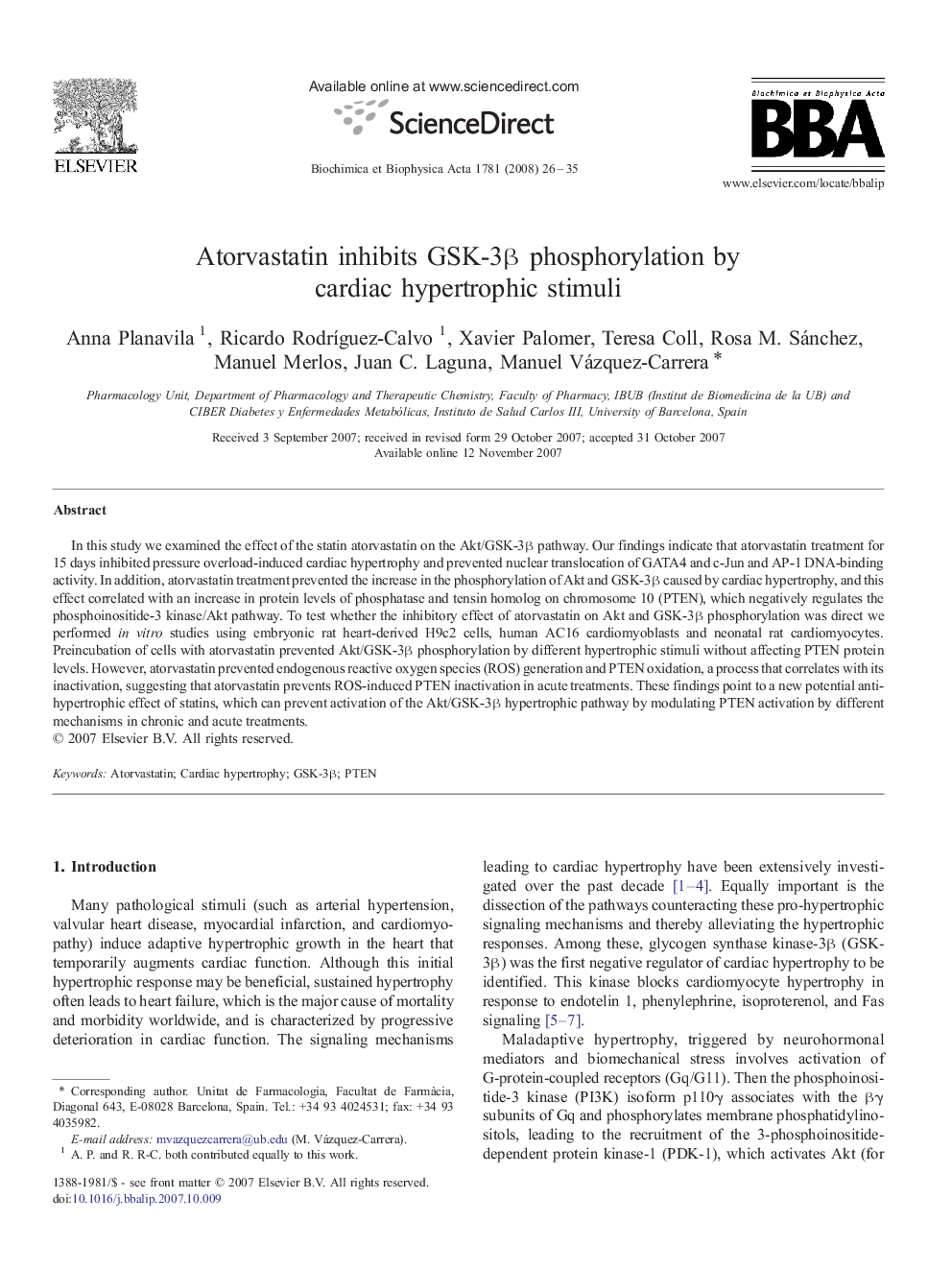| Article ID | Journal | Published Year | Pages | File Type |
|---|---|---|---|---|
| 1950112 | Biochimica et Biophysica Acta (BBA) - Molecular and Cell Biology of Lipids | 2008 | 10 Pages |
Abstract
In this study we examined the effect of the statin atorvastatin on the Akt/GSK-3β pathway. Our findings indicate that atorvastatin treatment for 15 days inhibited pressure overload-induced cardiac hypertrophy and prevented nuclear translocation of GATA4 and c-Jun and AP-1 DNA-binding activity. In addition, atorvastatin treatment prevented the increase in the phosphorylation of Akt and GSK-3β caused by cardiac hypertrophy, and this effect correlated with an increase in protein levels of phosphatase and tensin homolog on chromosome 10 (PTEN), which negatively regulates the phosphoinositide-3 kinase/Akt pathway. To test whether the inhibitory effect of atorvastatin on Akt and GSK-3β phosphorylation was direct we performed in vitro studies using embryonic rat heart-derived H9c2 cells, human AC16 cardiomyoblasts and neonatal rat cardiomyocytes. Preincubation of cells with atorvastatin prevented Akt/GSK-3β phosphorylation by different hypertrophic stimuli without affecting PTEN protein levels. However, atorvastatin prevented endogenous reactive oxygen species (ROS) generation and PTEN oxidation, a process that correlates with its inactivation, suggesting that atorvastatin prevents ROS-induced PTEN inactivation in acute treatments. These findings point to a new potential anti-hypertrophic effect of statins, which can prevent activation of the Akt/GSK-3β hypertrophic pathway by modulating PTEN activation by different mechanisms in chronic and acute treatments.
Related Topics
Life Sciences
Biochemistry, Genetics and Molecular Biology
Biochemistry
Authors
Anna Planavila, Ricardo RodrÃguez-Calvo, Xavier Palomer, Teresa Coll, Rosa M. Sánchez, Manuel Merlos, Juan C. Laguna, Manuel Vázquez-Carrera,
